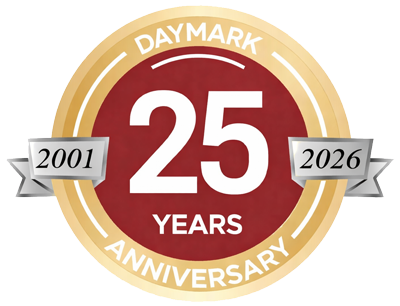 Meeting with clients, I’m hearing a lot of folks complaining about two common problems: First - Backups are taking far too long to complete. Second – Recovering a single file is a long, painstaking process.
Meeting with clients, I’m hearing a lot of folks complaining about two common problems: First - Backups are taking far too long to complete. Second – Recovering a single file is a long, painstaking process.
“Backups are taking far too long to complete.”
What is Your Data Retention Policy?
These backup and recovery challenges are nothing new. Some can be addressed by increasing bandwidth or by replacing an old and archaic backup environment, but a more effective approach, that many companies do not consider, is reducing the amount of data that needs to be backed up in the first place. When I ask the question “What is your data retention policy?” More often than not I hear silence, or even worse, someone will say, “We keep everything.”
“What is your data retention policy?”
With the continued drop in storage costs it’s easy to see why organizations have added more storage to accommodate data growth. It’s the path of least resistance. It’s fast and non-disruptive, but as time goes on, it creates more complexity.

Meeting Compliance Mandates
It can be daunting to stay in compliance with the regulatory mandates within your industry, but “saving everything” is not the answer, and in fact, can actually hurt you during an e-discovery process. The key is to establish a corporate governance and data retention policy that complies with regulations specific to your industry and then adhere to it! That includes deleting and destroying records once they are no longer required.
“Saving everything is not the answer”
Benefits of a Data Retention Policy
The top three benefits of creating a data retention policy:
- Less data to store results in a simpler and more cost effective storage environment
- Reducing the storage footprint helps to lower operational costs
- Shorter legal discovery time translates to lower legal costs
Getting Started
Here are the steps to start drafting an effective data retention policy:
- Involve business leaders - Executive sponsorship might be the single most important factor because implementing data retention processes can create a culture shock within the organization. Make sure the right champion is in place.
- Data – Should it stay or should it go? Determining what can and cannot be deleted has to do with your industry’s regulatory compliance requirements. Other factors to consider include data privacy – both corporate and employee, intellectual property, and proprietary info. (i.e. your company’s “secret sauce”). Each category will likely be treated differently in terms of long-term retention.
- Evaluate your current technology environment - Find out how you can streamline backup processes while preserving existing investments. Data deduplication and compression tools can dramatically reduce the amount of data that is being stored for backup. The solutions that leverage these tools can speed up the time to restore individual files for audit or legal reasons
How much could you save by improving the efficiency of your backup?

Controlling data growth has become a top IT priority. Implementing a sound data retention policy can not only reduce the complexity of backup and recovery, it provides a mechanism to dramatically cut costs, reduce storage requirements, improve backup & restore speeds, all while meeting retention and compliance requirements.
What are some of the challenges you’re experiencing as you navigate your way through your data protection and data retention obligations? Please include your questions in the comments section below and I’ll be sure to provide you with some helpful feedback.
About the Author
 Michael Mahan is a Sr. Account Executive with 10 years of industry experience. During his career he has worked with clients across all verticals including Banking & Financial Services, Pharmaceuticals, Healthcare and Manufacturing. Michael holds a MBA from Quinnipiac University and hold certifications with VMWare and EMC.
Michael Mahan is a Sr. Account Executive with 10 years of industry experience. During his career he has worked with clients across all verticals including Banking & Financial Services, Pharmaceuticals, Healthcare and Manufacturing. Michael holds a MBA from Quinnipiac University and hold certifications with VMWare and EMC.



